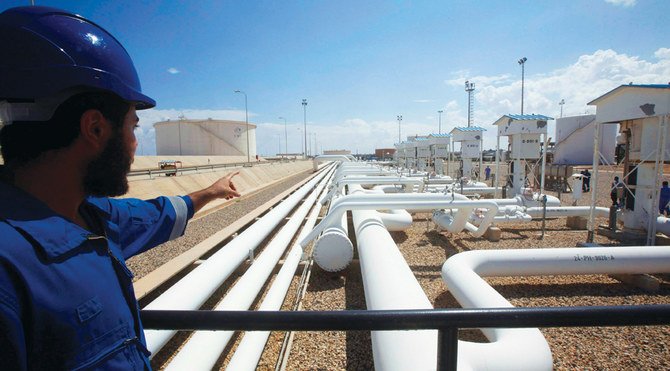
- ARAB NEWS
- 15 Jul 2025

Reuters, London
Oil prices rose to three-month highs on Monday, underpinned by optimism over an expected China-US trade deal and upbeat industrial data, while traders kept a close watch on the Middle East following US airstrikes in Iraq and Syria.
Brent crude futures were up 40 cents, or 0.6 percent, at $68.56 a barrel. The international benchmark has risen around 27 percent in 2019.
West Texas Intermediate (WTI) crude futures rose 10 cents, or 0.2 percent, to $61.82 a barrel. The US benchmark is up about 36 percent this year.
“Oil prices continue to remain supported near frothy levels as tensions in the Middle East could see key disruptions in the region, shrinking US stockpiles alleviate oversupply concerns and the US and Chinese look to wrap up the phase-one trade deal,” said Edward Moya, senior market analyst at OANDA.
The Middle East is on edge after the US carried out airstrikes on Sunday against the Kataib Hezbollah militia group, while protesters in Iraq on Saturday briefly forced the closure of its southern Nassiriya oilfield.
Also, Libyan state oil firm NOC said it is considering the closure of its western Zawiya port and evacuating staff from the refinery due to clashes nearby.
Oil prices were also supported by declining US crude stocks, which fell by 5.5 million barrels in the week to Dec. 20, far exceeding a Reuters poll forecast for a 1.7-million-barrel drop.
In China, factory activity likely expanded again in December on stronger external demand and an infrastructure push at home although the pace of growth is set to ease.
Some analysts cited abundant global crude stocks as a major obstacle in 2020 to efforts to rein in output by the Organization of the Petroleum Exporting Countries and its allies such as Russia.
“Even as OPEC and its non-OPEC partners endeavor to make additional supply cuts in Q1 2020, we are not convinced this will be sufficient to avert large global inventory,” said Harry Tchilinguirian, global oil strategist at BNP Paribas.
“We remain of the opinion that oil fundamentals continue to present downside risk.”